If you missed Marianne Williamson’s Candidate Summit Wednesday night, the video above is a 4 minute clip of one of the most impressive candidates who spoke, Jessica Mason.
The Dallas progressive activist is taking on a Democratic incumbent long overdue for retirement, too comfy corporate shill, Eddie Bernice Johnson. I implore you– I beg you– to watch Jessica’s powerful presentation to get an idea of why Blue America is endorsing her campaign today.
Texas’ 30th congressional district in Dallas in the bluest district in the state– PVI is D+29– and it was the district where the fewest Texans voted for Trump, just 18.9%. It starts at Love Field, works its way down through Parkland Memorial Hospital, Oak Lawn, the Hi Line and the Arts District, into the South Side and as far south as Duncanville, Cedar Hill, DeSoto and Lancaster. You would think a district like that would be sending a solid progressive to DC to represent it. If EBJ was once a solid progressive that was a long time ago. Today her ProgressivePunch score is a dismal “C” and her record is friendlier to her corporate donors than to her hard-pressed constituents. Time for a change! Time for Jessica Mason.
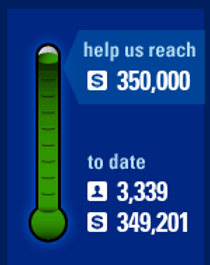
Every cycle, EBJ promises it will be her last campaign– and then decides on ‘just one more term.” She seems to be in the midst of the same stunt this year. Please consider clicking on the Blue America 2022 congressional thermometer on the left and contributing what you can to this Navy veteran’s campaign.

My Community Was Failed By Political Design
-by Jessica Mason
My grandmother, Ms.Olivia Ford, always found a way to make something out of nothing. Growing up, our fridge was near empty, yet each night she made sure my belly was full. My mom, sister, and I would turn on the T.V. and sing along with Mariah Carey, harmonizing with the sizzling sound of hot oil from Ms. Olivia’s kitchen. I imagine she would have been a chef in another life, but living in South Dallas she settled as a lunch lady.
My mother and grandmother told me many stories of what growing up in Dallas used to be like; they played in the park and could even venture around town. That wasn’t the same for me. In the 90s, the crack epidemic had our neighbors rarely ever leaving home. Despite the fear, there was a strong sense of community. My family barely had enough for ourselves, but if my grandmother knew someone needed food, she would bring them something. Once, a neighbor offered to braid my hair for free. She knew picture day was coming, and my family couldn’t afford to get my hair done. My neighbor was looking out for me– that compassion and understanding are inherent to South Dallas.
My mother worked 12 to 15 hours a day for a millionaire businessman. She was paid so little she couldn’t afford to keep the lights on at home. As a child, I had severe asthma attacks. Almost every night, I remember my mother had to carry me down the street to the fire station just to power on my nebulizer. The medication I needed to treat my asthma cost $20, but my mother couldn’t afford it, and because of that, my lung collapsed at the age of 7 years old. How can we be the wealthiest nation in the world and still let black and brown children suffer, nearly die, from treatable diseases? My community has some of the highest uninsured rates in the country and some of the lowest life experiences in the state of Texas. We need Medicare for All; end of story.
My mother always stressed the importance of getting an education as a means to escape poverty. I attended E.B. Comstock Middle School. Each day, my classmates and I went through metal detectors, and we watched many of our friends get handcuffed and taken to truancy court. We weren’t seen as students; we were seen as future inmates. I admit I was fortunate. In high school, I was a part of a college-bound program at SMU. College never seemed like a reality, but the thought someone had planned in 4 years I would get a diploma and head to college was liberating. To this day, I think of the friends I left behind. What if someone took the time to uplift them? They had just as much potential, if not more, than me, but society failed to see it. Black, brown, and immigrant children deserve opportunity.
I got accepted to seven HBCUs. “This is it; this is going to change my life,” I thought to myself. I was wrong. Not long after accepting my offer to Grambling State University, I couldn’t afford to pay the tuition and had to drop out. I was determined to get a degree, so I got a job at Blockbuster and enrolled in community college. It seemed things were turning around, but then I lost my job.
In South Dallas, when things get tough, the only thing we can do is work harder. Survival was the only option, so I enlisted in the Navy. For five years, I worked as a Navy medic while making sure to pursue my bachelor’s degree. I counseled service members ailing with the mental tolls of war, sexual harassment and sexual violence, and substance abuse. After completing my military contract, I decided to pursue my master’s degree while working as a legislative aide in the Virginia State Legislature. Working in public policy, I saw how corporate money worked to influence policies that destroy black and brown communities across the nation. I didn’t leave Dallas to make this world worse for another little black girl. So as soon as I completed my master’s I returned to Dallas.
Returning home, I was astonished to see things were exactly the same as they were when I left, if not worse. I started working as an affordable housing administrator to deliver life-sustaining resources, such as rental assistance, adequate nutrition, and healthcare, to families and individuals. Additionally, I began volunteering at various food pantries. As the holidays came around, I organized toy and coat drives for my community because I was once that little girl with no presents under the tree and holes in her coat.
My community was failed by political design. I underscore the fact it was by design. To undo these systemic inequities, we must be proactive in legislating policies designed for the success of black and brown people. That includes abolishing the privatized prison system, ending the school-to-prison pipeline, paying reparations to the descendants of slaves, providing a universal basic income, and passing Medicare for All. We can accomplish all of our goals and more with new leadership that sees my community’s humanness and understands its struggles. That is why I am running to represent TX-30 in the U.S. House of Representatives.
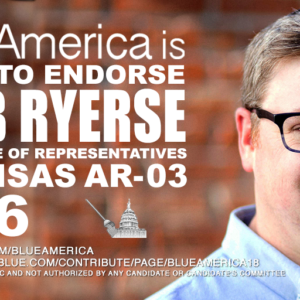
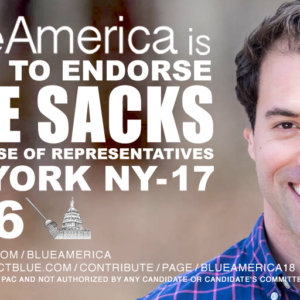

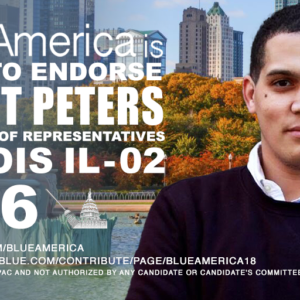
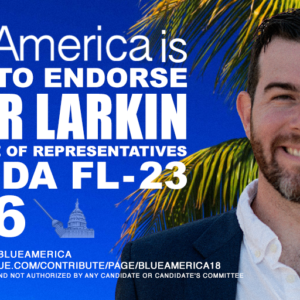



Comments